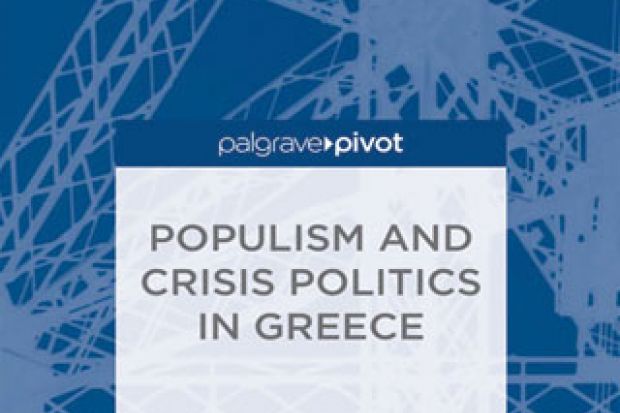In the 1970s, as Greece emerged from the era of military dictatorship, it looked towards the future with confidence. It embraced political liberalism, became the 10th European Community member, enjoyed a long period of economic growth underwritten in part by the financial support of the European Union, and joined the eurozone in 2001. Preparations for the 2004 Athens Games gave a further, albeit ephemeral, boost to the economy and led to the upgrading of the country’s infrastructure – airports, roads, public transport.
But after four decades of growth and social and economic advancement, Greece found itself facing an unprecedented economic challenge. A sovereign debt crisis led to the contraction of the economy and a sharp rise in unemployment, to the point where one in three young people are now without work. The disastrous management of the economy, and of the crisis, shocked Greece’s political system.
The main political parties saw their electoral base shrink dramatically, while Syrizia, an alliance of leftist groups, was propelled into the limelight as it became the main opposition party and a contender to form a government. And a tiny neo-Nazi organisation emerged from the murky waters of the criminal underworld, entered parliament (and more recently the European Parliament) and has been commanding the support of half a million voters ever since.
Considerable speculation revolves around the obvious question: what went wrong? What turned Greece’s success story into today’s economic, social and political nightmare? Takis Pappas argues that the Greek case defies the explanatory power of conventional cultural and institutional theories. The crisis was not the result of adverse historical conditioning, he suggests, nor was it the outcome of a predatory elite’s pursuit of narrow self-interest.
Expertly weaving his narrative around the view that the crisis is inextricably linked with the tradition of populist democracy, and identifying problems in earlier attempts to define populism, Pappas opts for the minimalist definition of “democratic illiberalism”. In providing a genealogy of this phenomenon, he navigates the maze of post-dictatorship politics and explores the dominance in Greek political discourse of aversion to the free market (and the concomitant collective fear of competition and yearning for state protection), anti-foreign bias (expressed as xenophobia, economic and political nationalism) and lack of institutional legitimacy. These elements, together with polarised bipartism in managing the distribution of state-related benefits, constitute the basis of the pathology of Greek democracy.
In considering the political debates and mobilisations that followed Greece’s unofficial default, Pappas weighs the impact of factors that remain part and parcel of the Greek body politic: widespread aversion to reforms, the expectation that the state should continue to operate as a benefit distribution mechanism despite its inability to generate the necessary funds, and the systematic scapegoating of “outsiders”, ranging from European politicians to foreign migrants.
Despite the book’s limited interface with theoretical debates on populism, it is methodical and replete with insights. With its accessibility further enhanced via vignettes of political personalities linked to the crisis, Populism and Crisis Politics in Greece offers a must-read look at the crisis and makes a valuable contribution to understanding populist politics in Greece and beyond.
Populism and Crisis Politics in Greece
By Takis S. Pappas
Palgrave Macmillan, 152pp, £45.00
ISBN 9781137410573 and 0597 (e-book)
Published 16 July 2014
Register to continue
Why register?
- Registration is free and only takes a moment
- Once registered, you can read 3 articles a month
- Sign up for our newsletter
Subscribe
Or subscribe for unlimited access to:
- Unlimited access to news, views, insights & reviews
- Digital editions
- Digital access to THE’s university and college rankings analysis
Already registered or a current subscriber? Login

